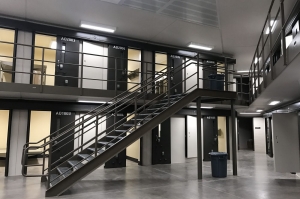The Consequential Effects of Prison Gerrymandering

As the 2020 census nears, talk has heated up about ensuring equal representation across the United States. And you may not realize how prisoners are accounted for.
Legislative districts in most states are drawn to include prisoners as residents where they are incarcerated and not where their true ‘home’ district is, which are typically in more urban regions of the state. This includes Pennsylvania. Villanova sociologists Brianna Remster, PhD, and Rory Kramer, PhD, examined this issue in more detail in recently published research.
Remster and Kramer looked at how incarceration shifts representation in this manner, while also figuring out the number of residents a legislative district might gain/lose if prisoners were ‘returned home’ and counted as residents in their home area. They used data from the Census, Pennsylvania Department of Corrections and Pennsylvania Redistricting Commission.
In their analysis, they found:
- If prisoners were returned to their home districts, 34 districts gained or lost more than 837 residents.
- The average Black PA resident would gain 353 new voters in their district, while Whites would lose 59.
- Latinx residents would gain 313 new voters in their district.
- 4 PA legislative districts would be too small to qualify as a district via the 1 person=1 vote rule.
- And four districts would be too big. Because it is Black and Brown communities that are underrepresented, Philadelphia would likely get another majority-minority district to satisfy the Voting Rights Act requirements.
- Overall, more than 200,000 PA residents are underrepresented. This shifts political power to rural and suburban districts, which are primarily White, at the expense of urban, Black & Brown residents
"Mass incarceration has resulted in 264,000 Pennsylvania residents being constitutionally underrepresented," Remster said in an interview with WITF. "Of that 264,000, over 100,000 are black Philadelphia residents."
Washington recently became the fifth state to outlaw prison gerrymandering, while five additional states have legislation pending.
If you are a member of the media and interested in speaking with either of these faculty members, contact a member of the Media Relations office here.
